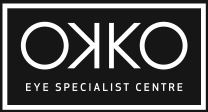What Medicare and private insurance will cover and what it won’t
What you pay for private cataract surgery will depend on:
- Your surgeon’s approach to billing
- Your health insurance coverage
- The type of lenses used (if you’re uninsured)
- Your circumstances
In this article, we’ll discuss each in turn.
Before proceeding, let’s define a few terms that may be unfamiliar to you:
What is Medicare?
Medicare is the government’s universal health scheme. It guarantees Australian citizens access to health services at little or no cost. The cost that the government assigns to medical service is called the Medicare Benefits Schedule, or MBS.
What does Medicare cover?
Patients who use private healthcare typically do not use the public health system. If you were to use health services in the public health system and your doctor “bulk bills”, Medicare will subsidise your care. The government considers care of this type to be “medically necessary”. Cataract surgery is medically necessary.
If you use health services in the private health system (i.e. for cataract surgery), Medicare will subsidise some (i.e. 75% of the MBS rate) of your care costs for the surgery. Medicare pays the benefit of 85% of the MBS rate for services provided outside of a hospital (i.e. a consultation). Your private health insurance may cover additional costs or you may have to cover some additional costs yourself.
Medicare coverage and payment for cataract surgery are the same irrespective of whether we perform the surgery using conventional surgical techniques or a bladeless, computer-controlled laser. Under either method, Medicare will cover and pay for the cataract removal and insertion of a conventional intraocular lens.
What is bulk billing?
Bulk billing means the doctor bills Medicare and accepts the Medicare benefit (the MBS rate) as full payment for service. You can assign the benefit to Medicare by signing a form. Alternatively, you can press OK on an EFTPOS (Electronic Funds Transfer at Point of Sale) terminal after your appointment. You will have no “out of pocket” expenses.
What is private health insurance?
Private health insurance is the coverage you pay for before you need it and comes in two types:
- Hospital cover
- Ancillary or ‘extras cover’ which includes allied health services
Hospital cover, which is relevant to cataract surgery, comes in four types: Gold, Silver, Bronze and Basic cover. The range of coverage is from the most inclusive to the most restrictive.
What is excess?
Health insurance policies may also include an “excess” which you, as the patient, must pay your private health insurer to access your cover. Some insurers in other countries may call this a deductive or a co-pay.
What is a ‘gap’ or ‘out of pocket cost’?
Doctors and surgeons can charge above the MBS rate. If they do, your private health insurance does not cover it, and this is what is called the “gap” or the “out of pocket cost”. You pay these so you must understand any out of pocket costs before you agree to services.
What are ‘additional fees’?
In cataract surgery, potential fees might include:
- The anaesthetist
- Operating theatre fees
- Additional scans and tests
- Premium lenses
After defining these terms, how much you’ll pay for private cataract surgery will make more sense as we discuss what the cost depends upon.
Your choice of surgeon and their approach to billing
Do you want to choose who performs your cataract surgery? A choice of specialist is only available privately and so will come with a cost. If you go to a public hospital, the hospital will assign you a surgeon to carry out your treatment.
When you’re enrolled in Medicare, the Australian government can help pay some or all your costs of seeing a cataract specialist. If your cataract surgeon chooses to bulk-bill, Medicare will cover the costs, and you won’t need to pay at all. This approach to billing usually occurs in public hospitals and will mean that you are added to the public hospital waiting list.
However, not all cataract surgeons bulk bill for all or any of the services they provide. If they do not bulk bill, you will need to pay for your appointment. But, you may be able to claim some of this money back from Medicare.
For certain services (i.e. cataract surgery consultations), your doctor may not bulk bill. If they don’t, you should ask:
- What they charge
- What you may get back from Medicare (this is known as a rebate)
To learn more about how OKKO approaches billing for cataract surgery, see our cataract surgery fees page.
Whatever the amount your surgeon chooses to bill, that is called the “gap”. You are responsible for paying that gap by choosing that surgeon. By choosing your surgeon, you also have control over the timing of your surgery. In many cases, you will be able to have your cataract surgery more or less immediately.
Importantly, you cannot select a specialist when accessing the public health system. You may also have to wait some years before you can have your cataract surgery.
Your health insurance cover
Are you insured? If not, you’ll pay more for your cataract surgery if you choose to have it in the private health system. With that said, you may still need to pay some of your fees depending on your insurance coverage.
If you are either self- or uninsured and wish to choose private cataract surgery, you will pay your surgeon’s stated fees and any out-of-pocket costs.
While cataract surgery can be bulk billed, public hospitals have much longer waiting periods than private hospitals. The average waiting time for cataract surgery at a public hospital is 6 to 18 months. If you need cataract surgery for both of your eyes, there may be an additional waiting period between each eye’s procedures.
In the public system, the exact time you will have to wait for your surgery depends on your location and the number of other Australians waiting for the same procedure.
In the private system, your surgeon may perform the two surgeries subject to your mutual availability. Sometimes, they even perform cataract surgery in the same session, one eye after the other.
The fees involved with cataract surgery at a private hospital typically include:
A theatre or operating room fee
- The surgeon’s fee
- The anaesthetist’s fee
- The cost of lenses
Medicare generally covers cataract surgery. But it doesn’t cover the cost of premium lenses and lenses that also correct refractive errors. Premium lenses can cost $2,500 per eye or $5,000 for both eyes.
If you are insured, the day surgery will directly bill your cataract surgery fees to your health fund.
In Australia, many health insurance organisations called health funds, provide health insurance. Such insurance is optional, covers the cost of treatment as a private patient in a hospital, and may provide “extras” cover.
Even if you are insured, there may be an excess to pay attached to your health insurance. The amount of out-of-pocket expense depends on your excess, the amount your surgeon charges and the extent of your policy coverage.
A policy covering major eye surgery (like cataract surgery) generally starts at $138.95/month.
To learn more about how OKKO approaches billing for insured and uninsured cataract surgery, see our cataract surgery fees page.
The lens options
Do you only want to have your cataracts extracted, or do you wish to reduce your dependency on glasses and contact lenses as well?
If you choose Medicare-approved lenses, public patients won’t have to pay any more for cataract surgery.
If you want premium lenses and are uninsured, you will have to pay for the lenses’ cost (i.e. out-of-pocket).
According to Finder, the average price for patients without insurance at private hospitals is around $2500 per eye.
If you are uninsured and choose to have your cataract procedure at a private hospital, Medicare will generally only cover part of the surgeon’s fee and anaesthetist’s fee.
When it comes to cataract surgery, “extras” may include:
– Premium lenses like EDOF
– Toric or multifocal intraocular lenses
These lenses all surpass the power and versatility of the lenses approved by Medicare.
To learn more about how OKKO approaches billing for standard, lifestyle and laser cataract surgery, see our cataract surgery fees page.
Your circumstances
Do you qualify for the Age Pension? The Age Pension is designed to provide income support to older Australians who need it.
Pensioners may be eligible for discounted consultations and surgery at some private hospitals. Medicare will pay for part of the surgeon and anaesthetist fee. Seniors on a pension without insurance typically pay less than $3,000 per eye.
To learn more about how OKKO approaches billing for cataract surgery for pensioners, see our cataract surgery fees page.
Cataract surgery cost overview
Prices for cataract surgery vary depending on:
- The hospital
- Your insurance cover
- The surgeon
- The lenses
- Individual circumstances
Your ophthalmologist (i.e. eye doctor) will recommend the best cataract procedure and lenses for your eyes. This will depend on your health, needs and lifestyle.
Surgeons can use premium lenses to correct common refractive errors, including:
- Short-sightedness
- long-sightedness
- astigmatism
- Presbyopia
These premium lenses are more expensive than standard lenses.
Some surgeons (like at OKKO) can obtain and refine superior cataract surgery techniques and results with lasers. You will need to pay for these extras as an “out of pocket” cost.
| Cover type | Out-of-pocket costs | Waiting period | Can I choose my specialist? |
|---|---|---|---|
| Medicare | Most public patients will pay nothing for cataract surgery, provided they use Medicare-approved lenses. If you want premium lenses, you will have to pay for the cost of the lenses. | Cataract surgery covered by Medicare has a general waiting time of 6 to 18 months. | No. |
| OKKO with insurance cover | You may have out of pocket costs depending on your level of cover, your excess, the hospital, and the amount your surgeon charges. See OKKO’s fees. | The waiting period will depend on the surgeon’s availability. In many cases, surgeons can perform the procedure more or less immediately. Book a consultation. | Yes. Learn more about our team here |
| OKKO without insurance cover | The average cost for patients without insurance at private hospitals is around $3000 per eye. See OKKO’s fees. | The waiting period will depend on the surgeon’s availability. In many cases, surgeons can perform the procedure more or less immediately. Book a consultation | Yes. Learn more about our team here. |
Medicare
Out-of-pocket-costs
Most public patients will pay nothing for cataract surgery, provided they use Medicare-approved lenses. If you want premium lenses, you will have to pay for the cost of the lenses.
Waiting period
Cataract surgery covered by Medicare has a general waiting time of 6 to 18 months.
Can I choose my specialist?
No.
OKKO with insurance cover
Out-of-pocket costs
You may have out-of-pocket costs depending on your level of cover, your excess, the hospital, and the amount your surgeon charges. See OKKO’s fees.
Waiting period
The waiting period will depend on the surgeon’s availability. In many cases, surgeons can perform the procedure more or less immediately. Book a consultation.
Can I choose my specialist?
Yes. Learn more about our team here
OKKO without insurance cover
Out-of-pocket costs
The average cost for patients without insurance at private hospitals is around $3000 per eye. See OKKO’s fees.
Waiting period
The waiting period will depend on the surgeon’s availability. In many cases, surgeons can perform the procedure more or less immediately. Book a consultation
Can I choose my specialist?
Yes. Learn more about our team here.







